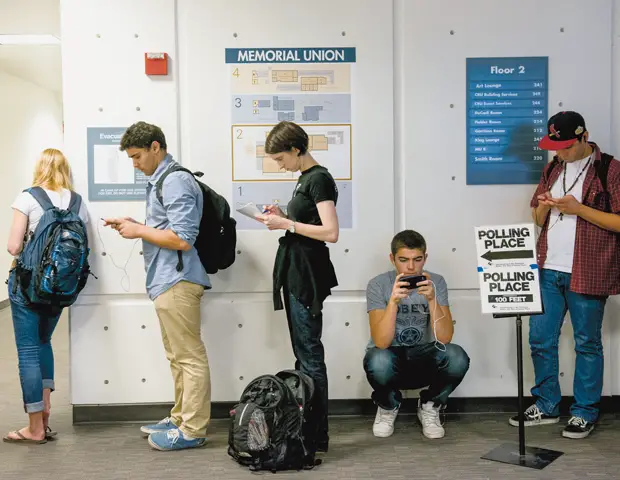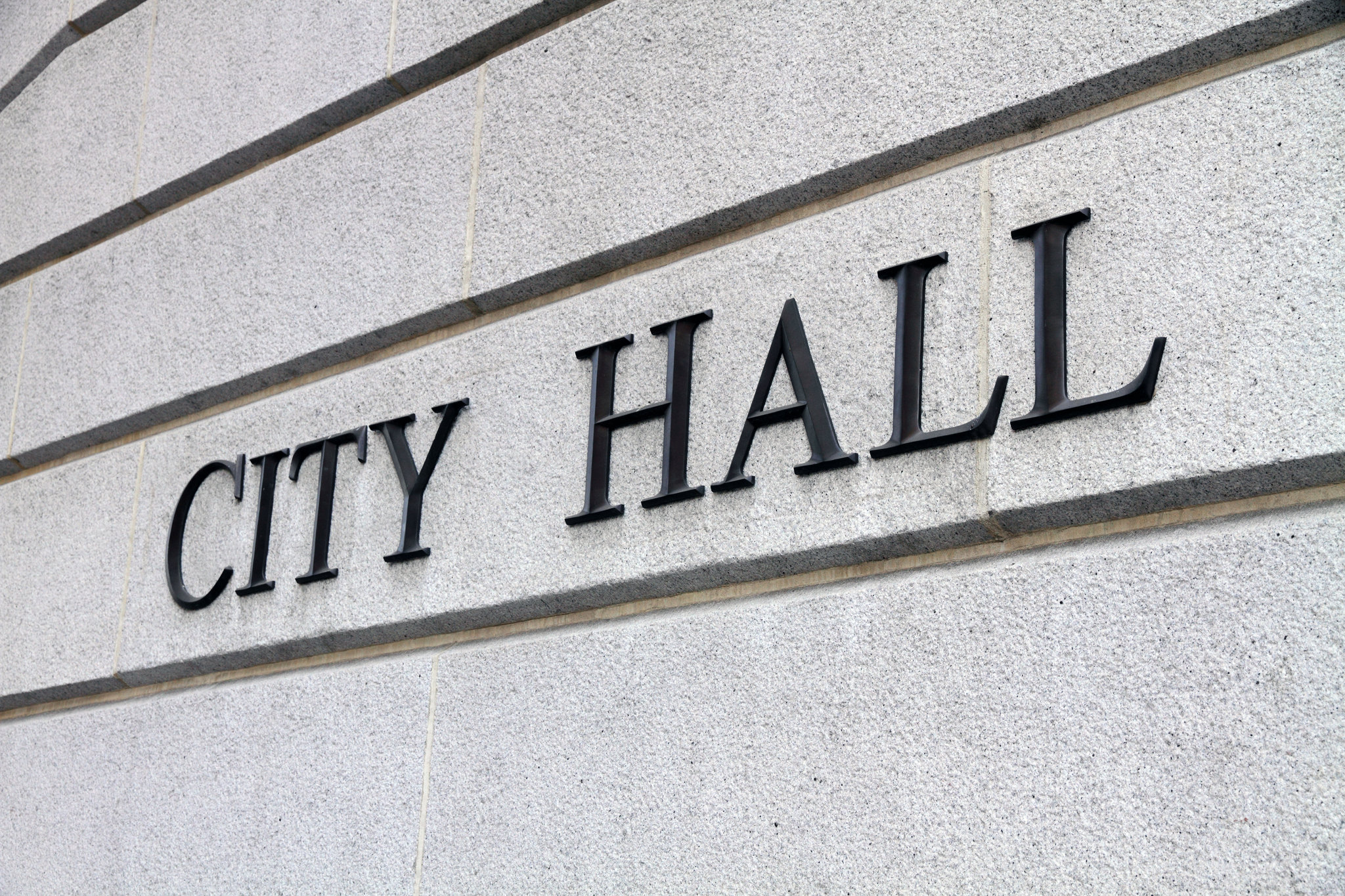4 Reasons College Students Need to Vote in Local Elections
The fact that some legislators have worked for years to bar students from voting should prove exactly why it’s so important.
By Timothy K. DesJarlais, University of Arizona
It’s no secret when you break voters down by age group, millennials tend to have the lowest turnout rate.
And although the data from the 2016 elections is still being processed and analyzed, exit polls show the trend seems to have continued. Millennials, especially college-aged voters, have always had a difficult time when it comes to matching the voting voracity of their elders. Common stereotypes claim that college students are traditionally busier and less interested in elections, preferring to party, play video games or study.
But, thanks to work from organizations like the “Campus Vote Project,” it has become apparent that millennials have a tough time matching the turnout of other generations because, quite simply, it’s more difficult for students to register to vote, due to restrictions on residency, as well as a host of others issues.

One such example occurred last year, in Greenville County, South Carolina, when county officials interpreted the 1973 “Dyer vs. Huff” decision as grounds for limiting and prohibiting college students from registering to vote on campus, unless they were able to provide proof that they were attached to the community. In 2013, Indiana legislators considered a bill to stop college students in dorms from voting in local elections, claiming that they weren’t residents. The measure, however, was eventually discarded.
The most recent example of college-voter suppression was when an Arizona legislator proposed a bill at the beginning of 2017 to prohibit voters from using a temporary address (like a dorm) for registering to vote. The legislator, representing a large district in the northern half of the state, barely won his re-election, and was apparently upset that a town in his district approved a $12 minimum-wage increase. Residents in the town attributed the wage increase, in part, to the presence college students living in town at the Northern Arizona University.
Trying to justify his controversial bill in an interview with “The Arizona Republic,” the legislator claimed his bill was the result of concerned citizens in his district telling him that they didn’t want temporary residents in their community (students) reducing the voting power of local residents. He also claimed that students needed to be more involved in communities where they are permanent residents, not where they go to school.
While initiatives like the ones above are uncommon at the state level, the fact of the matter is, according to the Campus Vote Project, while most states do allow you to register to vote at your campus, local governments and election officials still try to discourage student voters, especially when they are from out-of-state or living on campus in dorms.
So, should college students vote in local elections as well, even if they are just there to go to school and have no intention to remain after they graduate? My answer is YES, and here are some good reasons why.
1. It Can Affect Your School and Tuition
If you are attending a public university, chances are your school is receiving funding from the state. Recent trends show that the amount of state-government funding toward public institutions is decreasing.
According to “The Washington Post,” state funding of public schools has, on average, plummeted from 32 percent to 23 percent, meaning tuition paid by students like you is accounting for almost 25 percent of the school’s revenue. And, with most state governments having to tighten their fiscal belts, education funding is usually one of the first items to get slashed.
As a result, tuition for public universities rises even higher, causing more and more students to rack up student debt to pay their increased tuition cost.

By voting in local elections, you as a student will have an opportunity to participate in choosing state legislators, politicians who have a key role in approving the state budget, as well as any cuts or funding increases. By supporting candidates who are pro higher-education and against reducing college funding, you can move closer to keeping your tuition affordable.
2. It Can Affect Your Employment During and After School
Even if you do not plan on staying in the town where you go to school after you graduate, chances are you will probably want to find a job to help make ends meet or flesh out your resume.
Regardless, both state and local governments have a large effect on local business, the people who would potentially employ you. Many states or local governments may pass laws regarding increasing or decreasing the minimum wage, an issue that certainly affects you if you are just trying to snag part time work.
States and local governments can also pass legislation to improve or worsen working standards, make it easier or trickier to find jobs, and make internships harder or easier to obtain. By voting, you can make sure to support local elected officials and state officials who improve the local economy.
3. It Can Affect Your Life
Local government is probably one of the least glamorous forms of government, but it also plays the biggest role in affecting your everyday life as a student.
Wonder who decides the speed limit of the streets or who establishes crosswalks? It likely is your local city or town government. Wonder who maintains your favorite park or recreational area off-campus? It is likely your local city or town government. Wonder why roads may have so many potholes, or why it takes so long to plow snow from the roads? Road maintenance and repair services are provided by your local government. Wonder who establishes what kind of behavior is appropriate in a residential area? Noise and property regulations are usually implemented through zoning laws passed by local officials.
Even the air quality, your access to clean drinking water, waste disposal and access to emergency services, as well as public libraries, are all services provided by your local government. Are you a nature lover or proud environmental activist? Then chances are you can directly impact environmental issues by ensuring local governments are championing earth-friendly initiatives.
Local governments should never be underestimated for their ability to impact your life, even as a college student. And local governments are run by individuals who must be elected—elected by potential voters like you.
4. It Can Improve Your Understanding of Government
Because local government is often overlooked, becoming informed and aware of how it affects you while still in college will be great practice for when you eventually decide to settle down. While not all local government is the same, the practice of trying to remain informed and aware of what is going on locally is always a helpful endeavor.
Listed above are just a few examples of why you should get involved and vote in local elections. Yes, there are some who think college students shouldn’t have any effect on what goes on in their community. But, such views themselves reveal an ignorance of how local government works, and since local government affects you, you should have the ability to make your voice heard by voting.
For more information about voting requirements in your state, check out campusvoteproject.org.















